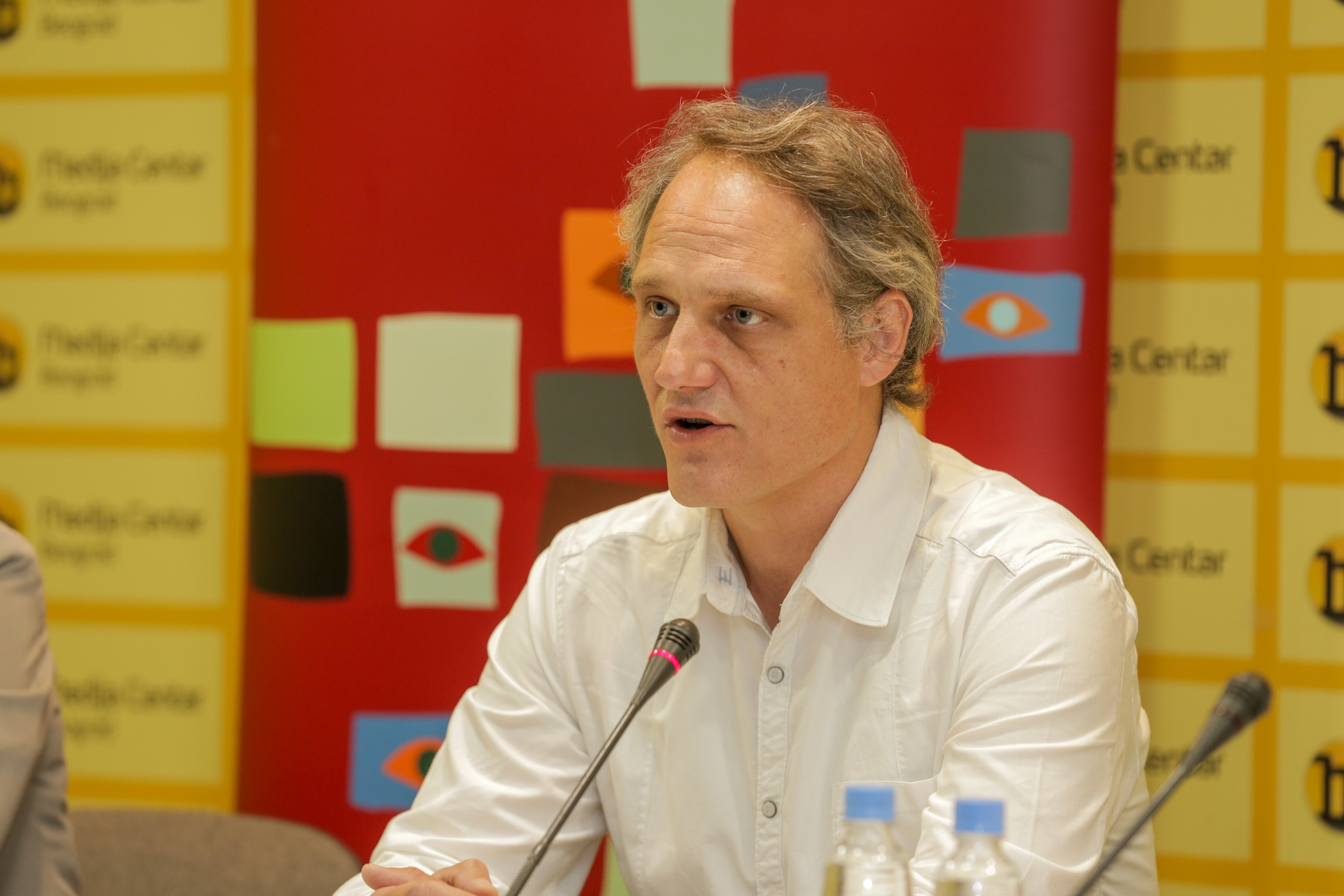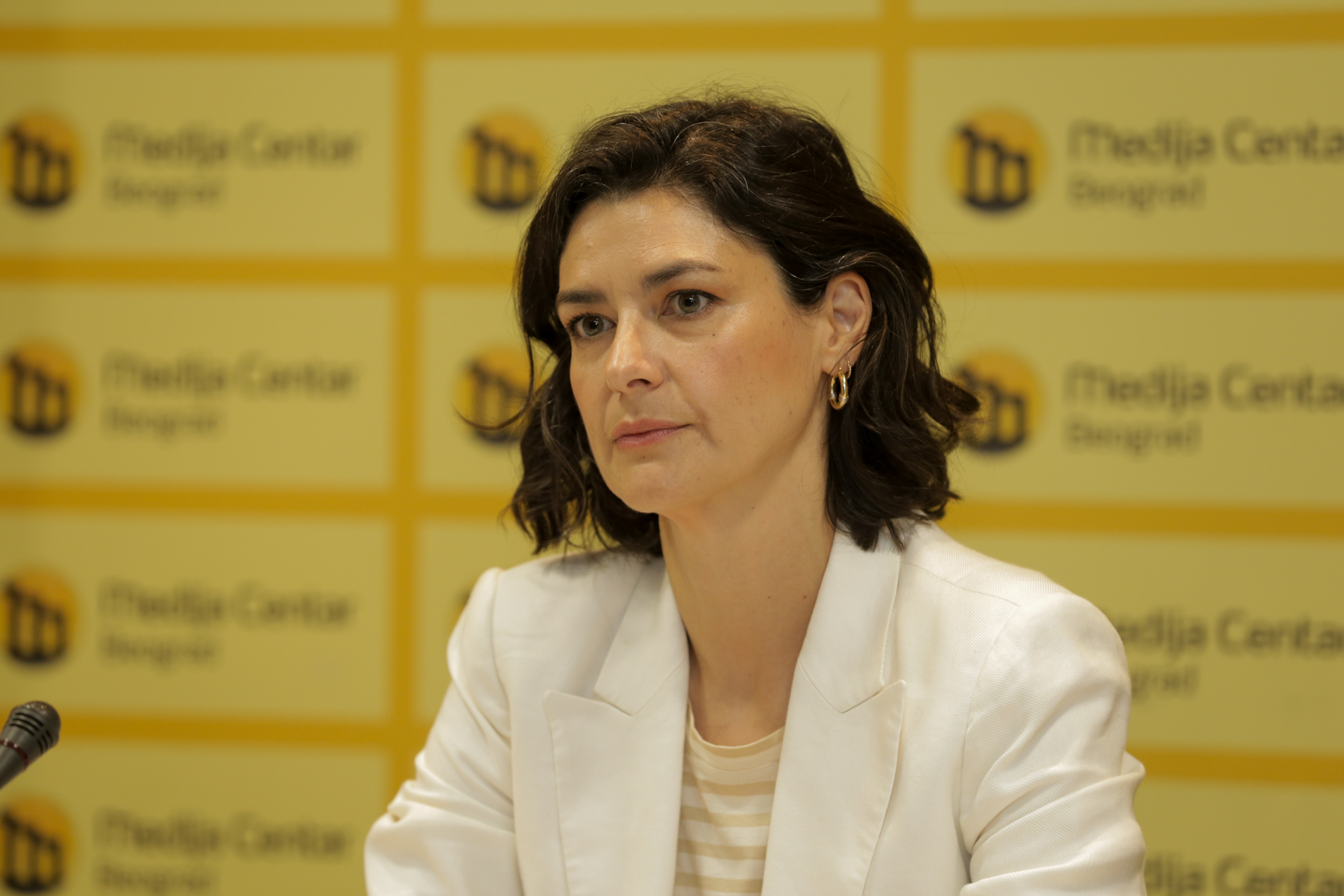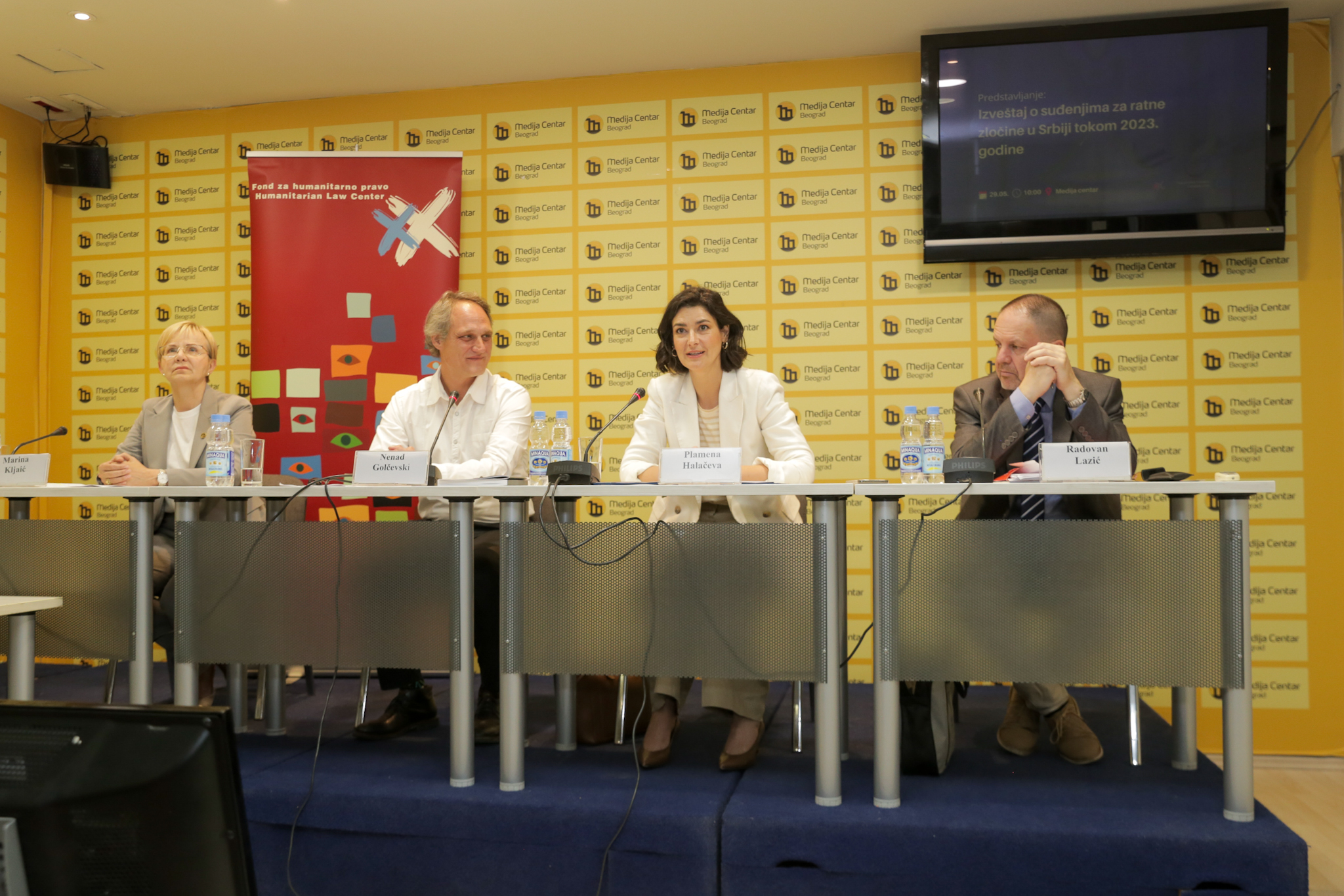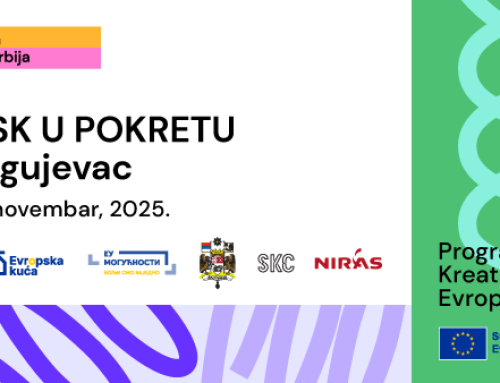Trial proceedings in 27 war crimes cases were ongoing in Serbia in 2023, five of which ended with the Court of Appeal issuing verdicts; one ended with an admission of guilt; while 21 cases are still ongoing, was stated by the Humanitarian Law Centre (HLC) at the presentation of their annual Report on War Crimes Trials in Serbia. The European Union finances the project through which the report was produced.
EU support is not only reflected in the financial support it provides to the area of war crimes case processing, capacity building and support for victims, but even more so in promoting the principles and values of the rule of law and human rights in Serbia – Nenad Golčevski, Executive Director of the Humanitarian Law Centre pointed out at the beginning of the presentation.

Speaking about the Report, Golčevski stressed that the HLC’s findings undoubtedly show a decline in the efficiency and quality of judicial processes for war crimes in Serbia across all the key criteria. He further noted the lack of transparency and visibility of the work of the Public Prosecutor’s Office for War Crimes (PPOWC) and other relevant institutions, as well as of the trials. He added that the PPOWC, the courts, and the High Judicial Council have all contributed to the current poor state of war crimes processing in Serbia, adding that this does not appear to be a consequence of the lack of resources, expertise or capacities. He concluded by saying that the goal of the report is not the criticism for its own sake, but rather as a tool to identify the areas and institutional practices in processing of war crimes which require urgent improvement.
The Deputy Head of Delegation of the EU to Serbia, Plamena Halacheva said that the EU has shown unequivocal support to Serbia and the whole of the Western Balkans region to foster stability, reconciliation and lasting peace in the region.
“As we follow the atrocities taking place in Gaza and the horrendous acts of Russian aggression in the Ukraine, we are reminded of how peace and stability can be destroyed in an instance, and the repercussion of that destruction lingers for generations to come, to the detriment of society overall”, said Halacheva.
As the largest donor to Serbia, the EU is providing financing to international organisations, such as the OSCE and UNDP as well as CSOs across former Yugoslavia to work in this difficult area, said Halacheva and added that report was a part of a large grant provided to HLC to undertake such important trial monitoring and analysis, but also to support victims and witnesses, to organise awareness raising events, lectures and debates- all important activities.
“We very much value and acknowledge the findings which continue to inform us of the lack of progress in this area, but also provide valuable guidance on how to make progress in this difficult area. Ultimately our collective aim should be to help the prosecution in Serbia and, beyond that, to address the impunity gap and ensure justice for the victims and their surviving families who have tremendously suffered as a result of the conflicts“, concluded the Deputy Head of Delegation of the EU to Serbia.

The lawyer of the Humanitarian Law Center (HLC), Marina Kljaić, indicated that the 2023 report of the HLC assesses the work of the War Crimes Prosecutor’s Office as “ineffective” due to “unnecessary prolongation of proceedings and lack of implementation of the revised prosecutorial strategy”.
Kljaić said that in 2023, the War Crimes Prosecution filed three indictments against seven persons. She stated “one indictment was transferred from Bosnia and Herzegovina, and the other two were the result of their own investigation and each of those self-initiated investigations are against only one suspect. Such results of the Prosecutor’s Office for War Crimes speak of great negligence,” Kljaić said.
The representative of the Association of Prosecutors of Serbia, Radovan Lazić, said that “the report is critical but not unobjective”, and that “the work of the War Crimes Prosecutor’s Office goes under the radar and the public is less and less interested”.

“It is difficult to disagree with most of the findings in the report, even the most general one, which is that the work of the War Crimes Prosecutor’s Office is unacceptably inefficient,” said Lazić.
The HLC has monitored every court session in all war crimes trials conducted in Serbia in 2023. The Report provides HLC’s general findings based on monitoring of all the trials, an overview of key social and political events relevant for war crimes processing, as well as a description and analysis of the proceedings for each of the cases.
The full report can be found here.




